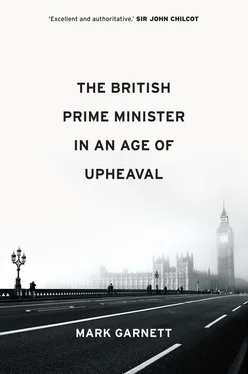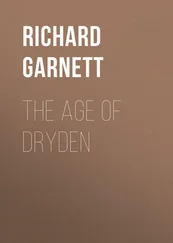If Major had delivered a lame speech on the original motion but followed up with a personal best in the confidence debate, the voting would almost certainly have been the same. He was left to wonder ‘Was there something I could have said … a speech, a broadcast, an argument which might have begun my party’s journey back to sanity?’ (Major, 1999, 384–5). On the evidence of July 1993, probably not; certainly, if there was such a verbal formula, Major never found it. It was not surprising that, after the defeat of his party in the 1997 general election, Major immediately sought refuge from politics at the Oval cricket ground, where his beloved Surrey gave the British Universities the kind of pasting which Labour had just administered to the Conservatives.
The Prime Minister versus Parliament
While one senses that Major would have spent more time in the Commons if circumstances had been different, Tony Blair’s absenteeism was more in keeping with his character and style of government. Between the elections of 2001 and 2005 he voted in only 7.5 per cent of Commons divisions. 2These were years in which Labour enjoyed an overwhelming parliamentary majority, so the absence of the Prime Minister was hardly likely to lead to any shock government defeats. Yet the 2001–5 Parliament also saw revolts over the Iraq War which were ‘the largest rebellions by MPs of any governing party – Labour, Conservative or Liberal – on any type of policy for over 150 years’ (Cowley, 2005, 5). Iraq, of course, was a highly controversial foreign policy issue – and Blair had not only been present during the crucial debate of 18 March 2003, but had delivered an impassioned speech. However, Labour MPs also rebelled in significant numbers over elements of the government’s domestic programme – proposed reforms in education and the health service, and the attempted removal of two chairs of backbench Commons select committees (Gwyneth Dunwoody (Transport) and Donald Anderson (Foreign Affairs)). The latter rebellion, on 16 July 2001, led to government defeats.
The idea that the physical presence – let alone the oratorical powers – of Prime Ministers is unnecessary except on rare occasions of dire need reflects the widespread view that the House of Commons has become a mere ‘rubber stamp’ thanks largely to the discipline imposed by party business managers (‘whips’), enhanced by the increased prevalence of ‘career politicians’ who realize that their prospects will be impaired by a record of rebellion. However, ample evidence suggests that the House of Commons has become increasingly whip-resistant over recent decades. In this context the votes in favour of Dunwoody and Anderson held particular significance, since these results reflected a desire to curb the power of party whips to interfere with the composition of Commons select committees. The idea of truly independent committee chairs was particularly unpalatable to Tony Blair, who had instituted a parliamentary Liaison Committee before which he would appear for lengthy, twice-yearly discussions. If he could no longer control the membership of this Committee his initiative would no longer look like a bright idea; he might even have to fend off some awkward questions.
The leading authority on parliamentary rebellions, Philip Cowley, has tried hard to dispel the laziest assumptions about the supine nature of MPs. In particular, even before the Iraq votes he stressed that rebellions can be highly significant whether or not the government wins the vote. In the 2001–5 Parliament, despite its crushing majority the Blair Government sometimes had to offer concessions to its critics during the passage of legislation; and even this was not enough to buy off the most determined opponents. While votes leading to government defeats provide great copy for reporters – and moments of high drama even for viewers and listeners with limited interest in political issues – serious students of British politics should pay at least equal attention to the votes which never take place, because the government has accepted the certainty of defeat and retires from the field to rethink its approach.
However, while Cowley’s main purpose is to defend MPs from the allegation that the Commons is inhabited by rival flocks of sheep, developments over the last few decades suggest equally interesting conclusions in relation to the executive branch. From this different perspective, it seems that the mistaken view of government MPs as lobby fodder is not restricted to ill-informed commentators. As we have seen, the select few who reach the summit of their political ambitions by ‘kissing hands’ with the monarch and taking on the role of Prime Minister will find it very difficult to retain their old impressions of the humble parliamentary foot soldiers they have left behind. Even a Prime Minister who originally entered Parliament with limited ambitions – a hypothetical case in the period under review, although John Major might be regarded as a reasonable approximation – will tend to assume that, given the right inducements, a sufficient proportion of the flock can be guided back into the party fold. Ultimately, this thought process is underpinned by the belief that a governing party which indulges in public disagreements is likely to lose the next general election. The prospect of a spell in Opposition is deemed to be an adequate deterrent to all backbenchers: those who seek ministerial office will have to recalculate their planned ascent, those who have abandoned their ambitions will no longer be able to find consolation as awkward players in a winning team, while the MPs who never wanted more than to serve their constituents will become impotent onlookers as their opponents implement distasteful policies. Even worse, MPs who allow their party to fight an election in a state of disunity might lose their own seats.
When evaluating the true significance of parliamentary rebellions, it is necessary to take account of the subjects of the votes as well as the scale of non-compliance. Necessarily, contextual factors are impressionistic, whereas votes against a government measure can be counted. However, when contextual factors are taken into account the rebellious propensities of Labour MPs between 2001 and 2005 seem much less impressive than the bare statistics would suggest. Although Thatcher did encounter resistance from ‘One Nation’ Conservatives – and indeed in April 1986 her government was thwarted by MPs from all wings of the party in its attempt to relax the laws on Sunday trading – her internal critics were effectively hamstrung by the party’s refrain that it had always been on the side of ‘free enterprise’, even during the years when it had accepted the broad outlines of the post-war settlement introduced by Clement Attlee’s Labour governments (1945–51). In other words, Thatcher could be seen as a more radical exemplar of a well-worn Conservative theme, and one which had always played very well among grassroots members. For its part, in Opposition after 1979 Labour had accepted many of Thatcher’s reforms by gradual steps; but when the party won its landslide majority of 1997 there was a widespread expectation (among the general public, as well as MPs and party members) of at least a modest reaction against ‘Thatcherism’. Even Blair’s post-election pledge that ‘We have been elected as New Labour and we will govern as New Labour’ was taken with a pinch of salt; after all, at the beginning of her premiership Thatcher had proposed that ‘Where there is discord, may we bring harmony’, and even her most ardent admirers would have to admit that these reassuring sentiments were rarely reflected in her subsequent decisions.
From this perspective, whereas Thatcher’s most controversial policies were almost invariably attuned to ‘core’ Conservative voters, many of New Labour’s measures represented a direct challenge to the party’s grassroots members and MPs who had embarked on political careers in order to preserve (or extend) the Attlee Governments’ reforms. The first Blair Government (1997–2001) flew an early quasi-Thatcherite kite by asking MPs to vote for a welfare reform – restricting the benefits available to lone parents – which would not have won support from any Labour member if it had been proposed by a Conservative. As such, the tally of Labour rebels – just forty-seven, plus around twenty abstentions in the vote of 11 December 1997 – was remarkably modest. The impression that the episode had been engineered by the government to smoke out and punish potential troublemakers at an early stage was reinforced by media reports that, although the government easily won the vote, the rebels would be subjected to sanctions of various kinds.
Читать дальше












